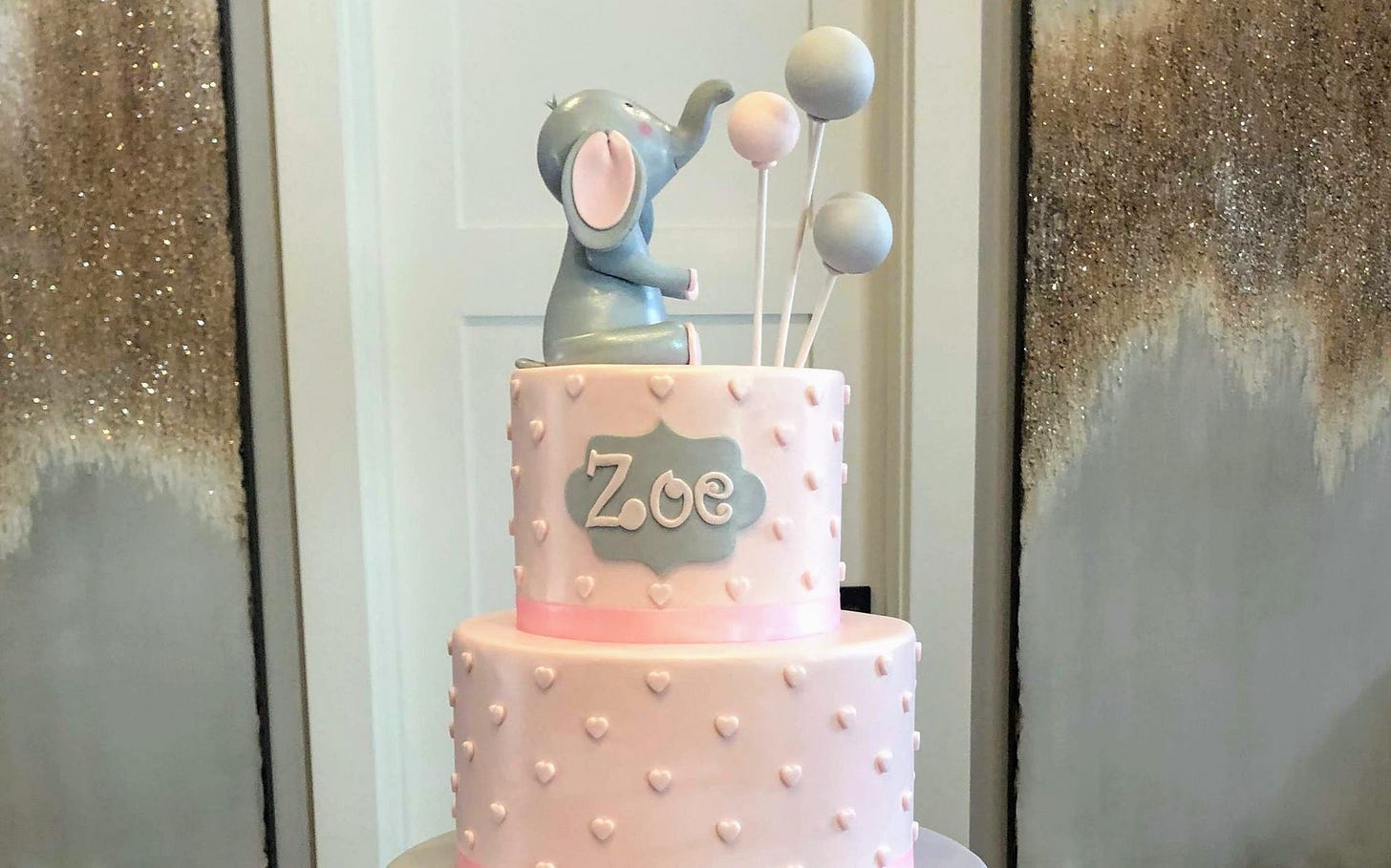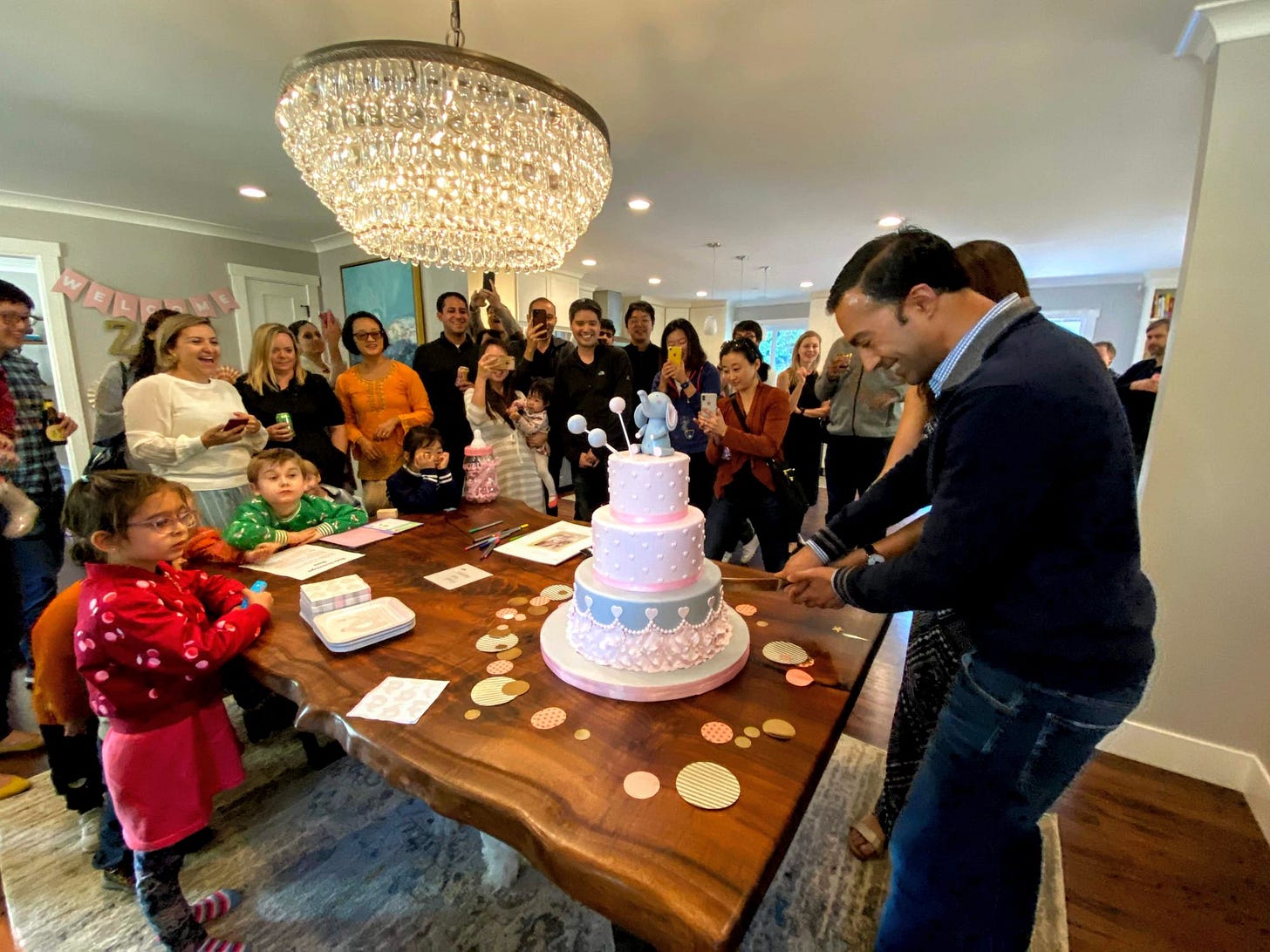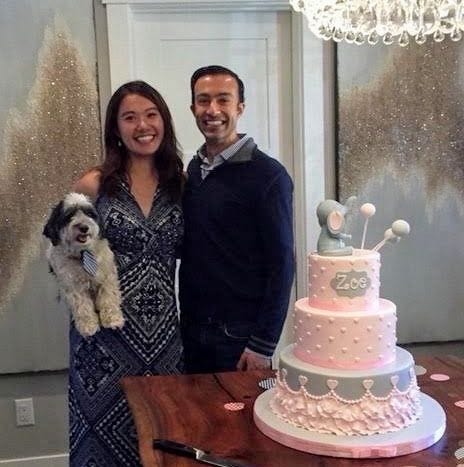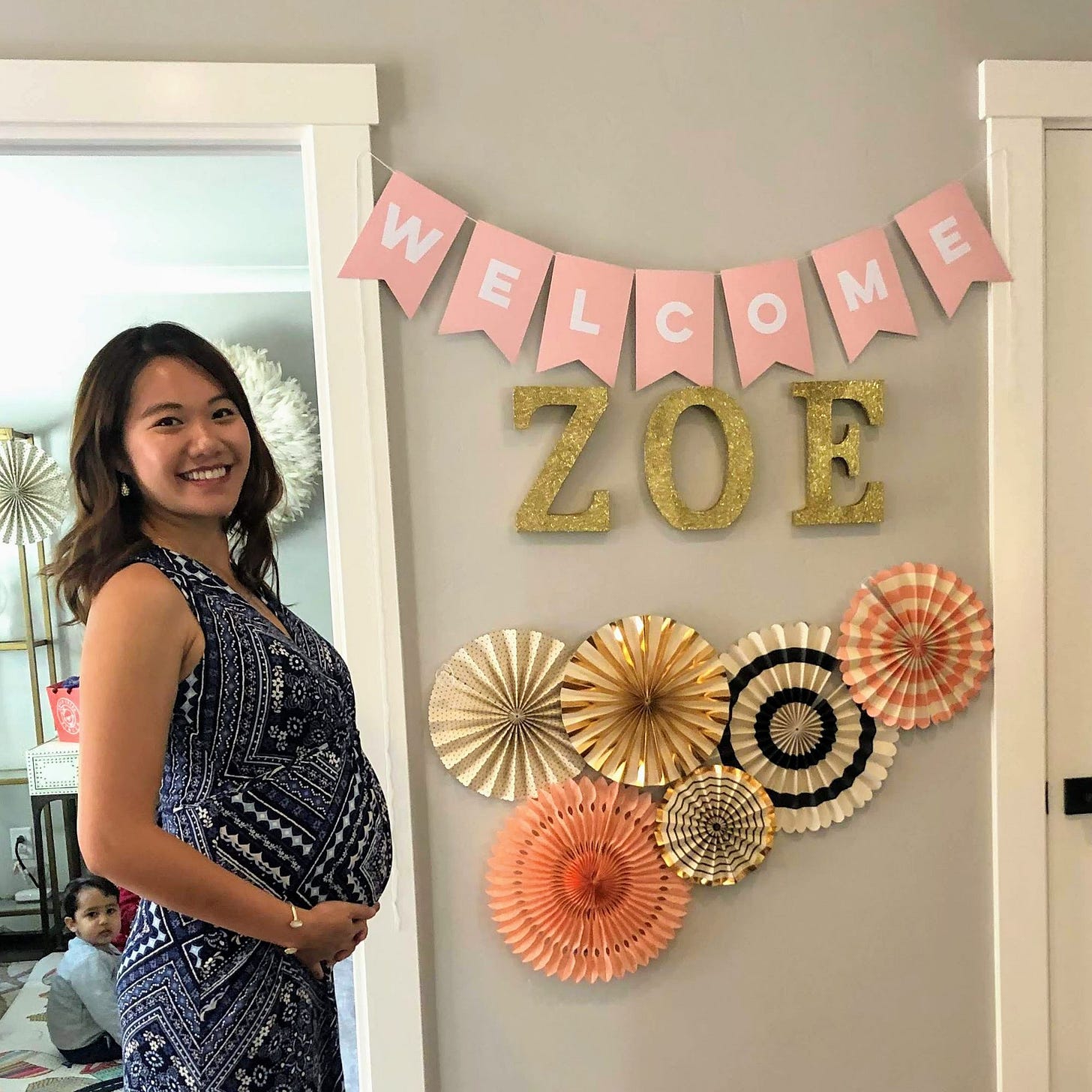Building your village
Dear Zoe,
On Saturday, we celebrated the news of your upcoming arrival with a baby shower thrown by your Aunties Flo and Kathy. As I gazed around the room at all of our friends and family, my heart was full. I was amazed and humbled by how many people turned out to celebrate or sent notes about how excited they are to meet you.
My wish for you is that you grow up surrounded by the love and friendship of your village of uncles and aunties, and for you to have the skills to build your own relationships to anchor and sustain you as you go through life.
They say it takes a village to raise a child, and I was reflecting on how all these people are your village, and how lucky we are to have them. Relationships have always been a top value in my life, and I wanted to pass on some of my lessons learned in this area in hopes that someday it's useful to you. Often considered a soft skill, I consider relationship building an incredibly important one. There's data supporting that not feeling lonely is an incredibly important predictor of long-term health and happiness. However, it's so tough to find time to invest in relationships and they often end up on the wayside, important but not urgent. In my experience, you'll have so much pressure throughout life to focus on tangible achievements like status, physical goods, money, etc. as well as measurable milestones like what college you end up going to, what profession you're in, the awards and achievements you've on, etc. The temptation (which I certainly have fallen into!) is to focus your time and effort only on the things which yield tangible results. After all, the next achievement is only a few hours of effort away, and even better, it feels productive and useful.
My perspective has shifted on this over time. I've come to realize that these tangible achievements are only the scaffolding that we build to support and enable our journeys through life, and not a destination in and of themselves. Don't get me wrong, I have a strong belief in hard work. Your dad Sachin and I have worked hard in life and continue to do so. However, our hard work is with a purpose: to empower ourselves to have control over our destiny and support our values and priorities in life. Both of us have always wanted to be able to spend our time doing something we're passionate about. Our hard work has enabled us to be in a position to work on our company, Notejoy, together, rather than the more straightforward path of working at the larger technology companies. It's enabled us to take many risks and take passion into account in many decisions throughout our lives.
If the achievements are the scaffolding, the relationships we have and our experiences with them are what provide meaning and destination along the way. All the achievements in the world feel lackluster without someone to share them with. These relationships, including and especially the one I have with your dad, have always been a top value in my life and I've tried to create systems in my life to support their growth. To that end, I wanted to share some of the lessons that I've learned to prioritize them.
Actively manage your relationships like you manage your work
One lesson I've learned is that relationships take hard work and you need to manage them just like a job to reap the rewards. It wasn't always like this. Growing up it always felt so effortless to maintain my friendships. In grade school, I used to call my best friend Michaela every day after school, and we had a lunch group of friends that always ate together and caught up every day in class and school. After we went to college, all of those easy connections from connecting in-person broke apart because we scattered off to college. Those friendships drifted. The same thing happened in college. I built many amazing friendships because we lived minutes away of each other and had endless time to hang out in study rooms and over late night pizza together. Afterward, my classmates and I split up to different companies and different places all over the globe and I lost touch with so many of them. This cycle repeats itself over and over again, in different forms, where relationships are formed from proximity and then it takes very real effort to keep them going afterward.
For a while, I was in a rut. I noticed that the friends I was seeing were the ones of convenience or those who made an active effort to reach out. The downside of this approach is that it's incredibly passive, and I ended up only seeing the subset of people who make an effort rather than those I really want to see. It struck me that if I could apply a fraction of the effort and structure to managing these personal relationships as I do on my career, I could move to a mode of more actively managing my personal calendar. What if managed it in the same way as I do my to-do list at work or professional networking? A few years ago, I went through the exercise of setting a personal goal for myself: make a list of 50 people that I haven't spoken to in 4+ months that I regret losing touch with, and reconnect with half of them over the next 3 months. It was an INCREDIBLE experience. I spent the next few months on phone dates, stacking in-person meetings, making office visits, and having some of the most energizing and fun conversations in recent memory. By making it a concrete and structured goal, I felt such a great sense of accomplishment doing something that has brought me a ton of happiness. I've since doubled down on this by making a regular weekly reminder on my calendar to review my relationships spreadsheet. It's literally a spreadsheet with a list of people in my life, with frequency and last contacted fields to help me keep track of who I should reach out to. The entire system now takes less than 10 minutes a week, but it's been so rewarding. Our time is better spent and we feel so much more connected.
Develop your skill in repairing relationships
Another relationship lesson I've learned is that the ability to repair relationships is a very real and important skill that isn't taught in any formal setting. Just like communication, decision making, time management, this is a skill that is incredibly important to practice and learn to do well. What does repairing relationships mean exactly? I'd define the skill of repairing relationships as the ability to have an open and vulnerable conversation with someone else to resolve and close a conflict.
This is important because you'll inevitably reach many points in your life where your feelings are hurt by what someone has said or done, or you have a disagreement with someone and say or do something that hurts one another. When you don't have this skill, it often feels like your only choices are to confront them (fight), maintain the peace by looking past it (ignore), or distance yourself from the other person (run away). These approaches are convenient but problematic. Fighting can lead to a rupture and deepen hurts, ignoring can create distance or build up into resentment, and running away is basically throwing the baby out with the bathwater and calling it quits on the relationship. Running away happens all the time, we even have a term for it: ghosting! Ghosting is where a relationship is ended suddenly and without explanation by just stopping all communication with someone. Rather than have a direct conversation, the person ghosting you will just stop responding. If you've ever been on the receiving end of this, it really hurts.
In recent history, I've never had the tool set to manage conflict constructively. If a relationship starts going the wrong way, I would distance myself from someone until the feelings settle enough to ignore them away. Or I'd fight and this usually resulted in everyone worse off. To build this skill of repair, the first half is learning how to have an open conversation about how you feel. How you engage matters. Rather than starting with an attack, "You are so selfish! I can't believe you did X," engage in a way that creates space for them to share their side of the story, "Earlier when you did X, it made me feel Y. I don't feel good about this, can we talk about this?" In one possible outcome, maybe there's another side to the story that you didn't consider or know, and with that your hurt is eased. In another, maybe you have irreconcilable differences, but at least you both have closure that it's not going to work out.
The other half of building this skill of repair is learning how to say "I'm sorry that I did X". It's crazy to me how many times I've been in a situation where those two words are all it would take to resolve the situation, but it's so hard to get out. There is real power in acknowledging your role in making someone feel a certain way and expressing sorry for it. I know it's easier said than done because often there's a lot of pride tied up in sorry, but rather than framing it as winning or losing I now see of it as a way to express care for the other person.
In closing, whether it's managing your time to grow my relationships or repairing them, I've learned not to take my family or friends for granted. It takes hard work to keep relationships strong, and even harder work sometimes to bring them to an end. If the relationship is important enough, it's worth the discomfort to take an active role in managing this conflict rather than having it slip out of your grasp. Zoe, I hope that your dad and I continue to develop in these skills and model them for you throughout your life.
The recent baby shower stirred up all these feelings of gratitude and love for our friends and family, and I'm so excited for you to meet all of them. We all have our own definition of happiness and you have an entire village supporting you in charting your own path as you grow up.
❤️ Love, Mom





